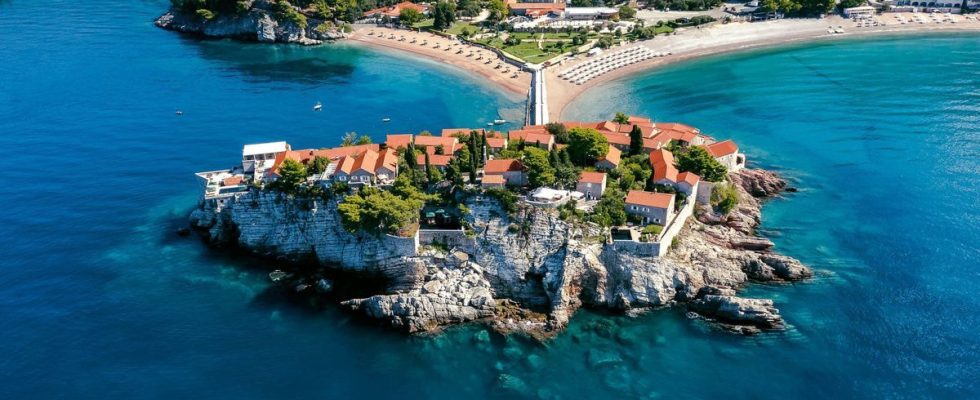Published on
Updated
Reading 3 mins.
Hundreds of people gathered in Montenegro for two months in a pop-up town called Zuzalu. The goal? Discuss biotech solutions to slow human aging and live longer. These longevity enthusiasts are even considering creating their own state to make it happen.
Could Zuzalu be one illustration, among others, of the heady obsession of a certain elite for eternal youth? For two months, from March to May, hundreds of handpicked people, mainly biotech entrepreneurs, cryptocurrency investors and scientific researchers, invested Zuzalu, on the Adriatic coast of Montenegro. No need to look for this city on a map, it does not exist. This “pop up city”, a kind of ephemeral city, was entirely created to allow members of this community to meet and stay together. Behind this name Zuzalu, invented from scratch by Chat-GPT, is actually a community of “longevists” ready to defy death, or at least old age, by investing colossal sums in biomedical research and technological projects in the frontier of science fiction. At the head of this community is Vitalik Buterin. This Russian who emigrated to Canada as a child became a billionaire by inventing the Ethereum protocol, which gave birth to the Ether cryptocurrency, Bitcoin’s great rival.
For two months, these “longevists” discussed biotech, medical innovation, slowing down aging, during multiple conferences or more informal moments. Ultra healthy breakfasts, yoga sessions, swimming, sauna, in shorts and flip flops… the atmosphere is ultra relaxed, according to the photos posted on social networks. But don’t be fooled by this atmosphere resembling a vacation club for the ultra-rich. It is only a pretext. The real purpose of this two-month experience? To know if this community could live together… permanently.
The “Longevity State”
For these “longevists”, investing millions of dollars in biotechnology to extend life expectancy has limits: the laws. And more particularly the regulations of the pharmaceutical industry, in the United States, in Europe or elsewhere. “I’m pretty ultra-liberal… who am I to stop you from trying a treatment? We’re all adults, and if you understand what you’re doing and if you understand the risk, then do it.” explains Josef Christensen, Zuzalu participant and business development manager of stem cell company StemMedical to the magazine MIT Technoloy Review. But these libertarians come up against a problem, and not the least: a decision by the WHO, that of not recognizing aging as a disease. However, this recognition would allow them to carry out multiple clinical trials with the agreement of the health authorities. So to free themselves from this legal framework, seen as a real constraint for them, and to carry out trials and experiments as they see fit, the idea would be to found their own state. A decentralized space, financed by a community, which has its own currency, a crypto-currency in this case, and which would be recognized by other nations. But concretely how to implement a state-network?
The idea may seem crazy, but there are concrete examples around the world, such as Prospera, to name but one. City inaugurated in 2020 on the island of Roatan in Honduras, Prospera is one of the ZEDE, employment and economic development zones, authorized in the 2010s by the former Honduran president, Juan Orlando Hernandez. Concretely, Prospera is a city-state focused on technological and medical innovation with a low tax rate and which has its own laws and its own currency, Bitcoin. This paradise for libertarian cryptocurrency enthusiasts counts among its investors big names from Silicon Valley, such as Peter Thiel, the founder of PayPal, who also funds a foundation that fights against aging, the Methuselah Foundation.
Zuzalu members plan to create their own Prospera, especially in Montenegro. But another possibility also germinates in their minds, that of settling in the United States. The country has a number of followers of this kind of theories around aging and above all, a lot of biotechnology companies. And in their minds, the state of Rhode Island would be well placed, because of its proximity to Boston, a major biotech center, and its small population (about one million people). The plan would be to attract enough supporters to influence local and federal elections and, therefore, politics in this east coast state.
